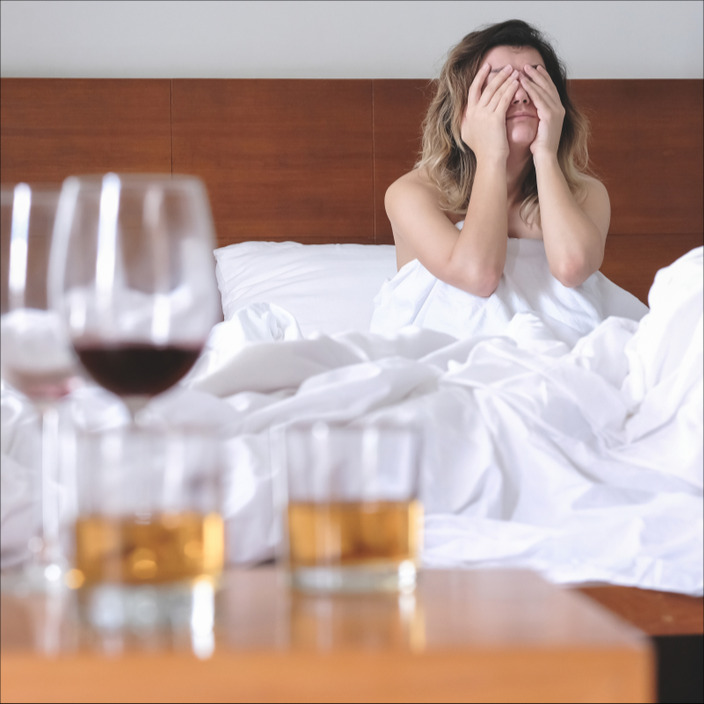
Hangover after alcohol abuse
Fighting hangovers: Effective tips against the consequences of alcohol abuse
The day after a night of drinking can often feel like a battle.
A heavy head, nausea and a general feeling of discomfort are typical symptoms of a hangover that can make the morning after a misery.
but what exactly is a hangover, why does it occur and, above all, how can you effectively counteract it?
In this blog post, we get to the bottom of these questions and share a number of tips and tricks that can help you combat the unpleasant consequences of alcohol abuse.
What is a hangover and how does it develop?
A hangover, also known medically as a veisalgia, describes a group of symptoms that can occur after consuming alcohol .
Typical signs of a hangover are headaches, nausea, thirst, tiredness and difficulty concentrating.
But how do these unpleasant side effects occur?
Alcohol is a diuretic, which means that it stimulates urine production in the body and thus leads to dehydration.
This can cause headaches and thirst. In addition, the body converts alcohol into the toxic substance acetaldehyde before it is further broken down into more harmless chemicals. Acetaldehyde is a major contributor to hangover symptoms.
In addition, alcohol consumption can cause inflammatory reactions in the body, which can also contribute to the symptoms of a hangover .
Tips for combating a hangover
1. Drink water
As alcohol has a dehydrating effect, it is important to replenish your fluid balance. Drink plenty of water before going to bed and the next morning. This can help combat dehydration and reduce the intensity of headaches.
2. Replenish electrolytes
In addition to water, the body also loses important electrolytes when consuming alcohol . The loss of electrolytes can contribute to symptoms such as headaches, nausea and general weakness. Drink electrolyte drinks or coconut water to restore your electrolyte balance .
3. Eat breakfast
Although you may not feel like it, a nutritious breakfast can help to balance the blood sugar fluctuations caused by alcohol consumption. Eat easily digestible foods such as toast, bananas or oatmeal to give your body the energy it needs.
4. Rest and recuperation
Give your body the time it needs to recover from the stresses and strains of alcohol consumption. Try to get enough sleep and treat yourself to a quiet day if possible.
5. Natural remedies
Some natural remedies such as ginger or peppermint tea can help to combat nausea. Honey, which is rich in fructose, can also help to speed up the breakdown of alcohol in the body.
6. Avoid certain drinks the morning after
Although it can be tempting to reach for coffee or other alcoholic drinks to combat the symptoms of a hangover, this can often do more harm than good.
Coffee can increase dehydration and consuming more alcohol can lead to a worsening of your symptoms.
Prevention: The best way to fight a hangover
Of course, the most effective way to avoid a hangover is to drink in moderation. Here are some tips on how to enjoy responsibly:
Set yourself a limit and stick to it**
Drink slowly and give your body time to process the alcohol**
Alternate between alcoholic drinks and water**
Eat a solid meal before drinking alcohol.**
Conclusion
A hangover can be an unpleasant reminder of excessive alcohol consumption. Whilst there is no magic cure, the tips above can help alleviate the symptoms and aid the recovery process .
However, the most important thing is to consume alcohol responsibly and not put your body under unnecessary stress. Remember that prevention is key and take care of yourself.
Become a member now
As a member, you will receive further information and frequencies on this topic! Log in here!
